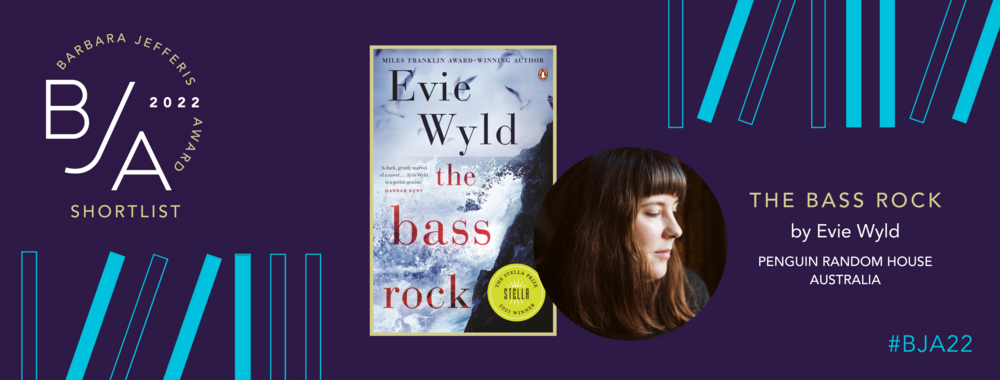12.09.22

How did you start writing?
I started writing because I find things not written down very difficult to understand. I’ve never been sure of what I think about anything, let alone how people function, so as a kid I kept a diary to write down what happened so I could look at it later and try to figure people out. Writing fiction became an extension of reading for me – the same things I got out of reading – inhabiting someone else’s skin and experiencing other places and times, but above all trying to understand what on earth was going on. I took a creative writing course as a reason to leave a dead-end job and getting an agent after that gave me the confidence to try writing a novel.
What inspired you to write The Bass Rock?
The experience of inhabiting a female body for 40 years was a big one. But the death of my father and my grandmother in quick succession, both of whom feature in fictionalised ways in the book, definitely brought about the tone of the book. I’m startled by how much better I feel I know them both now they are gone. I’d also just had a baby when I started writing and that put me into a sort of hyper-vigilance, I felt like I was ready to pounce.
What was your writing process like for this book - what were the most challenging and enlightening aspects of writing it?
The having a baby thing was tricky. I wrote for an hour a day while he slept, so it was slow and there was a long period when I wondered if I was even writing a novel or if I’d just gone a bit funny. There were so many different voices – partly this was to do with the way I wrote at the at time, I didn’t have the luxury of pontificating on what I wanted to write or considering how it connected to the thing I’d written the day before – I just had to spew out what was front and centre in my brain. Having faith in myself in those moments was probably the most challenging thing aspect of writing it.
In what ways do you think the protagonists in The Bass Rock might be empowering figures for women and young girls?
A tricky question. All I hope is that women of any age might see something they recognise in the book. I think the MeToo movement showed us the power in women speaking to each other, believing each other and not keeping quiet to save the discomfort of others. If I was able to give the book to myself as a kid, my kid self would be relieved to find someone else who found being tickled without consent disturbing and invasive.
How do you think literature helps to shape our understanding of ourselves and others?
I don’t know how else to understand ourselves or others – for me reading and writing has been the key to understanding anything at all. People are keen to portray the human race as baddies and goodies with no overlap and I think the beauty of writing is to be able to look at the driving forces behind the things that we do, those in between spaces. I also think there’s nothing so affirming as when you read something in fiction which puts into words a feeling you have that you hadn’t previously known was a real thing. That is the way to feel connected to the rest of the world if you can’t do it in person.
What was the most recent book you've read about women or girls that moved you?
Delphi by Clare Pollard is the only novel set in the pandemic I’ve read. It’s quietly powerful and so familiar, I don’t know if it’s made it over to Australia yet but any woman who felt herself entering a bizarre place within motherhood and wifedom and witchiness during the last few years should read this to see themselves reflected back.
Evie Wyld grew up in Australia and the UK. She is a part owner of Review, a small independent bookshop in London. Her first novel, After the Fire, A Still Small Voice, won the John Llewellyn Rhys Prize and a Betty Trask Award. In 2011 she was listed as one of the Culture Show’s Best New British Novelists. She was also shortlisted for the Orange Prize for New Writers, the Commonwealth Writers’ Prize and the International Dublin Literary Award. In 2013 she was listed as one of Granta’s Best of Young British Novelists. Evie’s second novel, All The Birds, Singing, was published in 2013. It was longlisted for the 2014 Stella Prize and the Baileys Women’s Prize for Fiction, and shortlisted for the Costa Novel Prize and the James Tait Black Memorial Prize. She is the winner of the 2013 Encore Award, the Jerwood Fiction Uncovered Prize, the 2014 Miles Franklin Award and the 2021 Stella Prize. Her graphic novel with illustrator Joe Sumner, Everything Is Teeth, was published in 2015.
Keep up-to-date with ASA advocacy, support and advice
with our fortnightly newsletter.